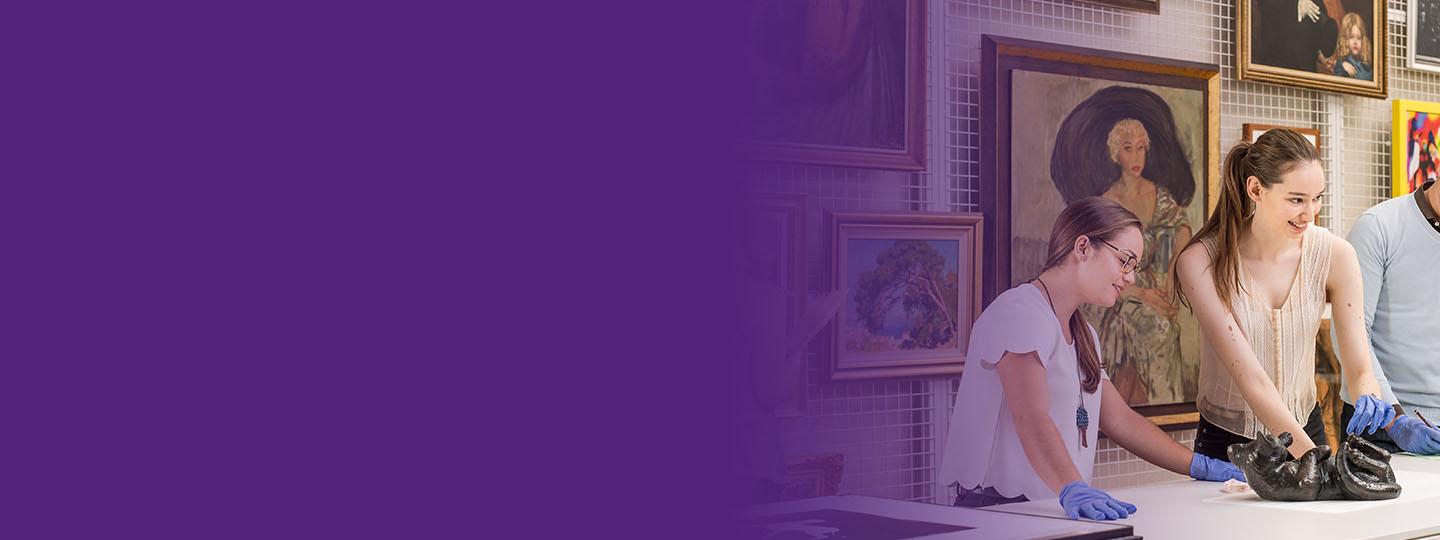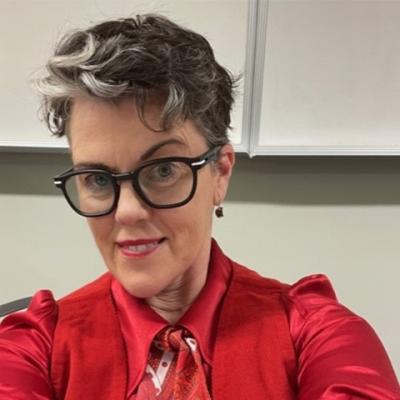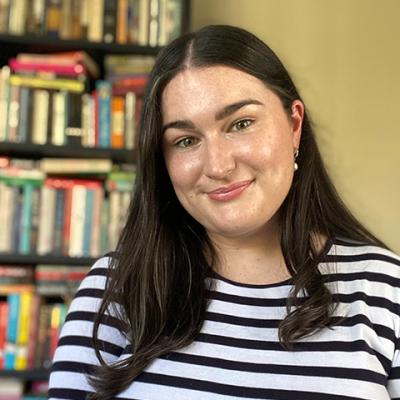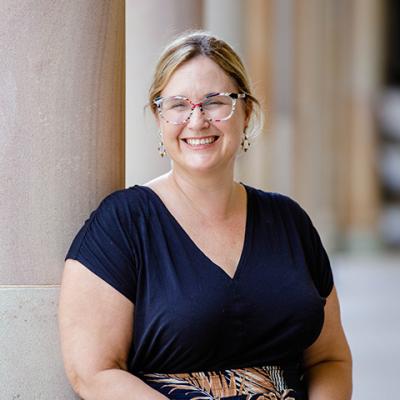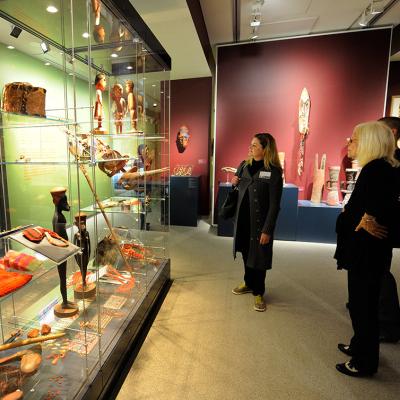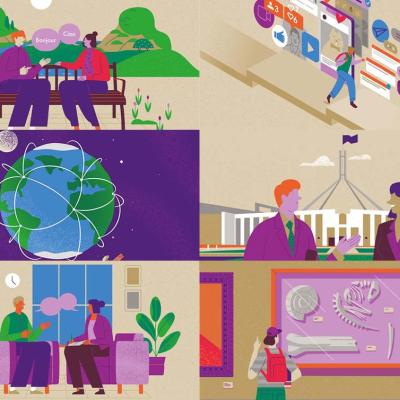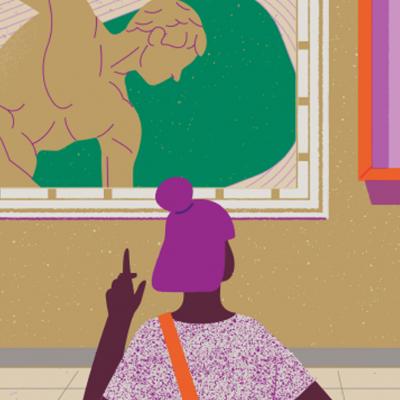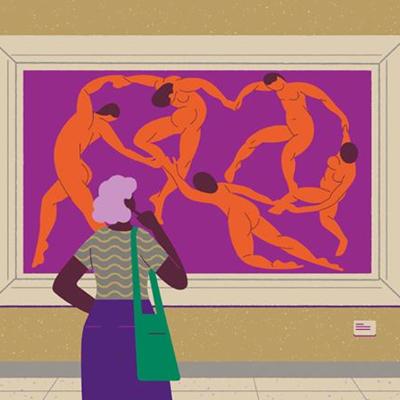Develop your knowledge and skills in museum history, contemporary theory and practice, and build your career in the galleries, libraries, archives and museums (GLAM) sector.
The Master of Museum Studies at The University of Queensland allows you to connect and preserve contemporary society through a historical, cultural and artistic lens.
Engaging with UQ’s world-class museums and collections, together with leading professionals in the field, will provide you with a uniquely stimulating environment for museological research and training.
Did you know? Museology is the science or profession of museum organisation and management.
- Merriam Webster
We asked several of our graduates and academics to reflect on the question: why choose a Master of Museum Studies?
Here’s what they had to say.
1. Suitable for any learner
Whether you're new to studying museum/heritage-related topics or you're an industry professional looking to take the next step in your career, you'll find your own passion in museum studies.
By establishing a grounded foundation, you'll get the opportunity to pursue your passion of art, culture and history with the limitless possibilities of the digital era.
You can choose to study:
- museum context
- collections
- learning to work with Indigenous people
- museums or GLAMs as sites of learning
- the role of digital culture in the sector.
An interdisciplinary approach to courses and a broad choice of interdepartmental and cross-faculty electives helps you develop a critical awareness of social, cultural and political issues facing those working in the sector, all while getting the hands-on training necessary for professional practice.
2. Access to world-class collections
UQ is home to a number of collections including UQ Art Museum, UQ Anthropology Museum and the RD Milns Antiquities Museum.
Master of Museum Studies student Lisa Enright believes having access to campus collections really elevated her studies.
"Being able to go out to real museums and watch curators and collection managers in practice gave us insight into the industry," she says.
"We also got to learn about cutting-edge technologies and how they are used by museums, artists and curators in museums today."
Students will have full exploration of state-of-the-art facilities and technologies in the digital era.
With access to museums on campus, as well as local and regional collections at the forefront of learning activities, you can enhance your knowledge of contemporary day-to-day work practices both in and outside of the classroom.
From Queensland Art Gallery (QAG) and Gallery of Modern Art (QAGOMA) to museums in London, New York and Tokyo, our students have undergone work experience opportunities and studies all over the globe.
3. Put theory into practice
The program goes beyond establishing a theoretical foundation. You'll put theory into practice by working closely with the industry and esteemed teaching staff who are renowned experts.
"They mix a lot of deep theory and practical application, which all complement one another quite well, which was perfect for me," says Lisa.
"Students gain a range of knowledge like the history of museums and different ways of working with museums and collections."
"And they also get a fantastic experience to learn the best practices of handling artefacts and how to deal with significant statements."
Courses like Museum Learning and Outreach (MUSM7030) are delivered in partnership with the Learning Department of Queensland's state art gallery, giving students insights into running museums through workshops at QAGOMA.
A combination of theoretical coursework and practical training enables students to fully grasp every aspect of the museum field including:
- museum management
- curatorial practices
- exhibition design.
4. Expand your network
You can also gain professional experience and contacts in the workplace through our short-term internships or placements.
Program Convenor and Lecturer Dr Caroline Wilson-Barnao believes one of the most exciting things for students is working with a fantastic range of industry experts and academics.
"We have some amazing in-house collections, and our relationships with industry are outstanding, with many practitioners invited as guest lecturers to teach in person," she says.
"Industry has put a lot of energy into supporting the programs that we teach so that we're feeding back out into the industry with students who have a very high level of training."
Students are guaranteed access to thought-provoking teaching from industry experts and gain valuable influence in the museum field.
5. Industry growth
With more than 7 million visitors over the age of 15 to art galleries and museums across Australia in 2022, the industry is projected to grow even further in 2023.
Now is a better time than ever to start building your career in the museum and heritage industry.
Ready to embark on a fulfilling journey that further explores your passion of art, culture and history with the limitless possibilities of the digital era?

